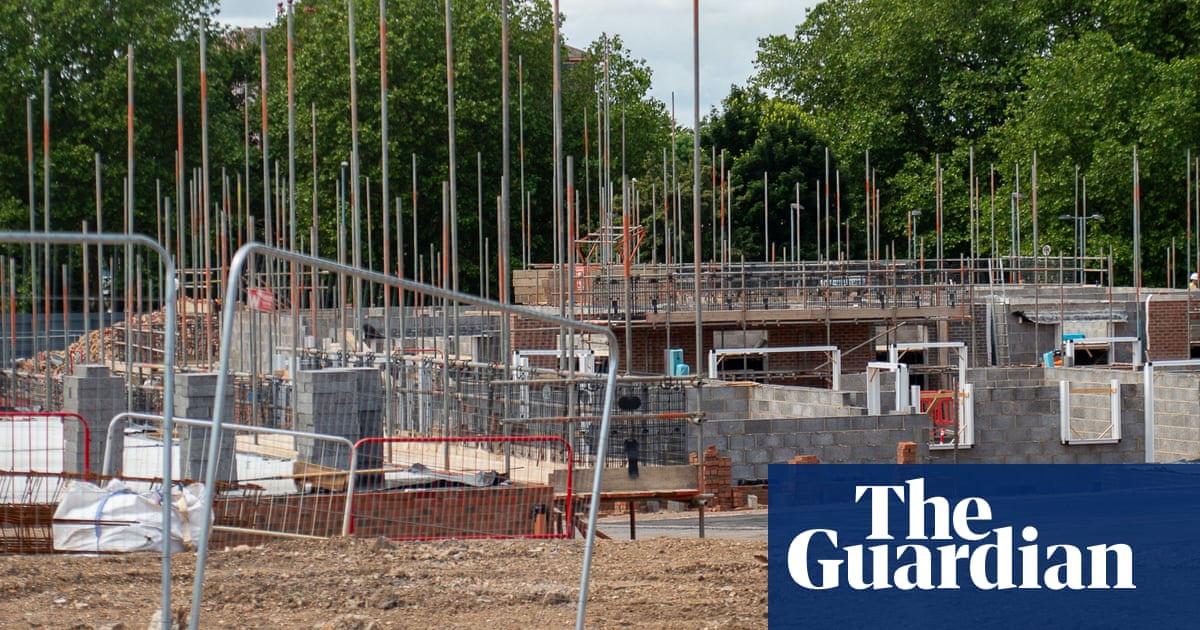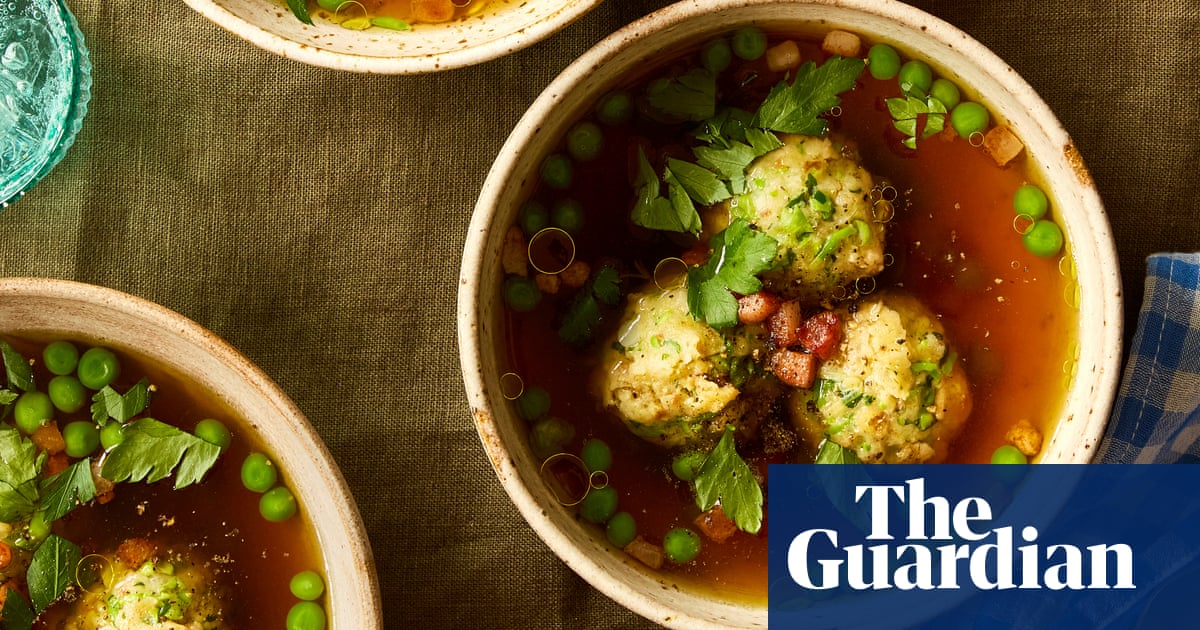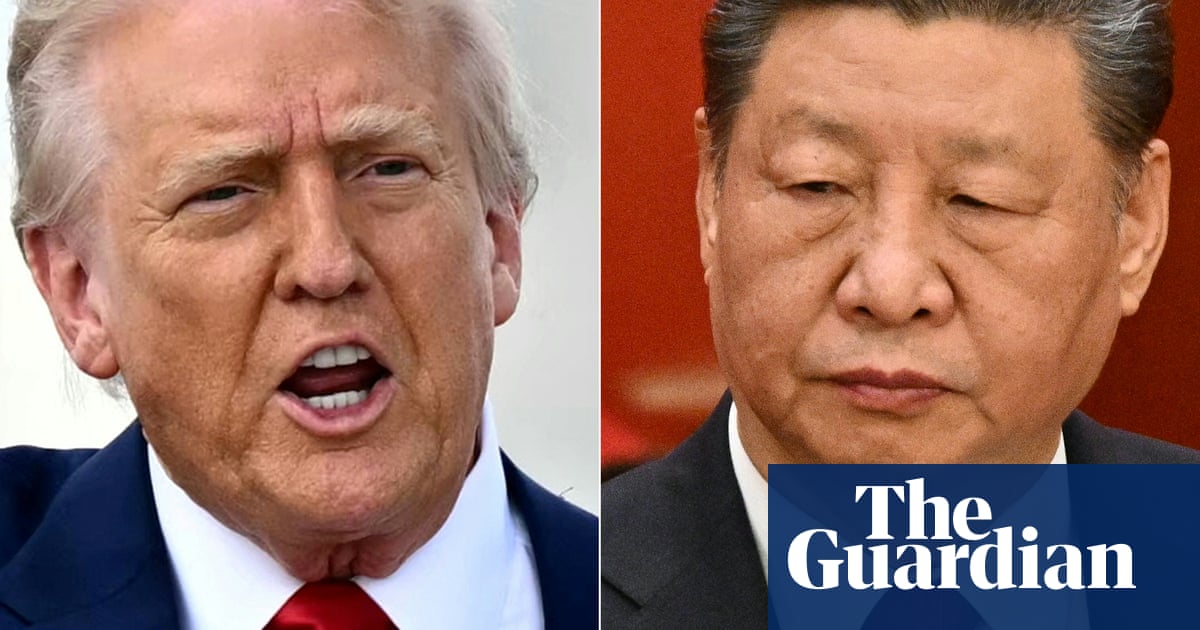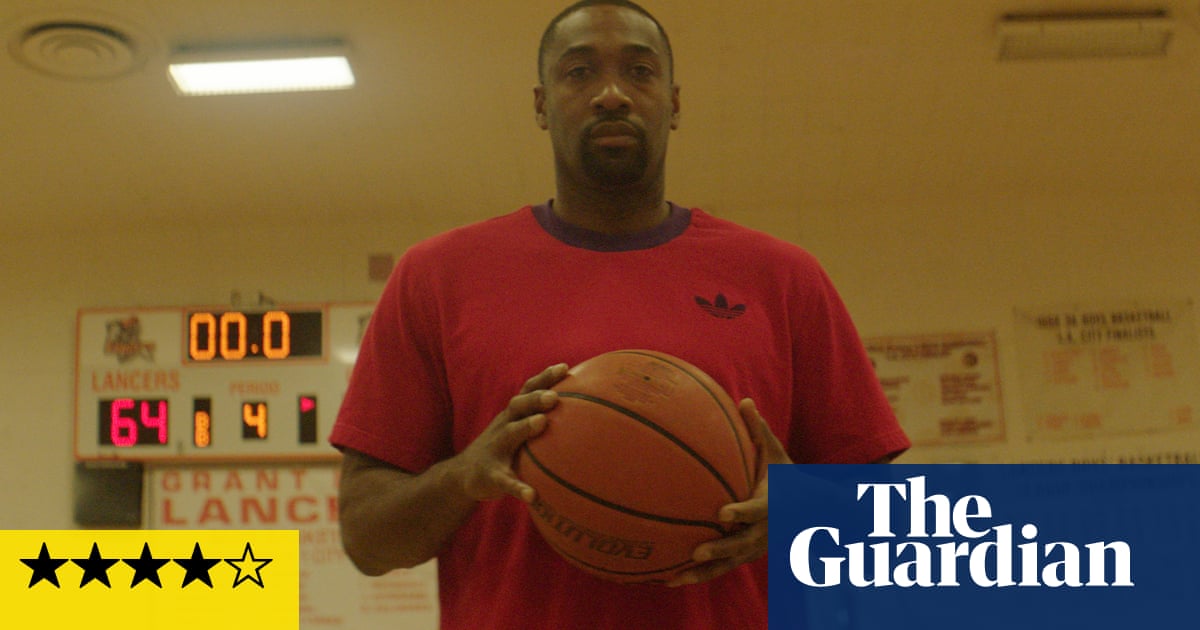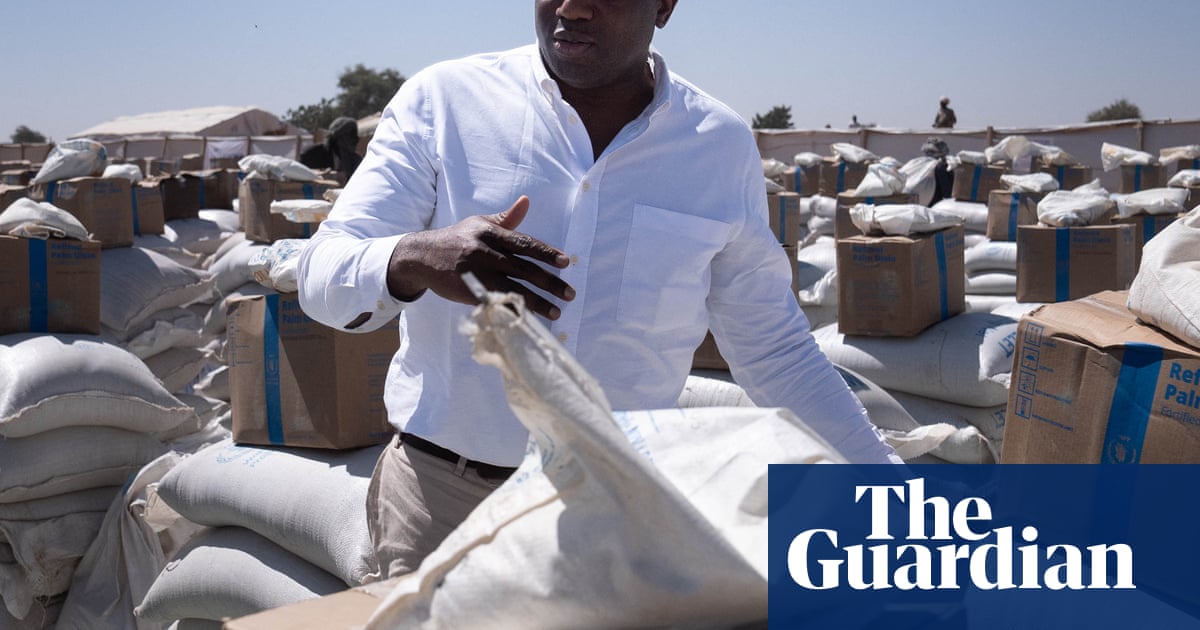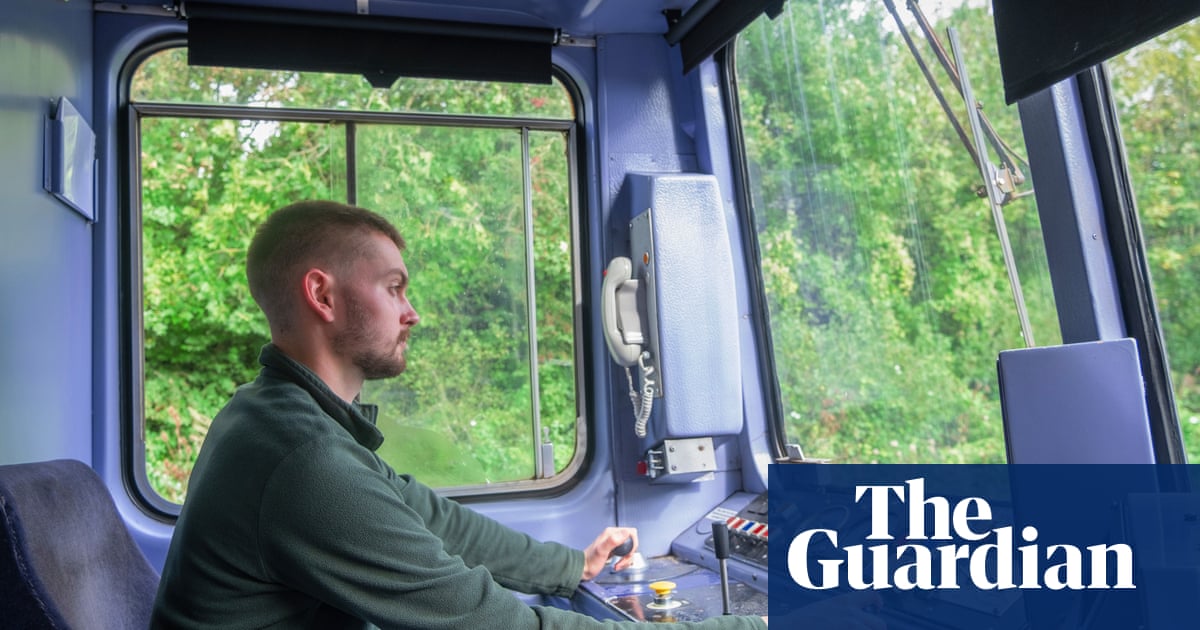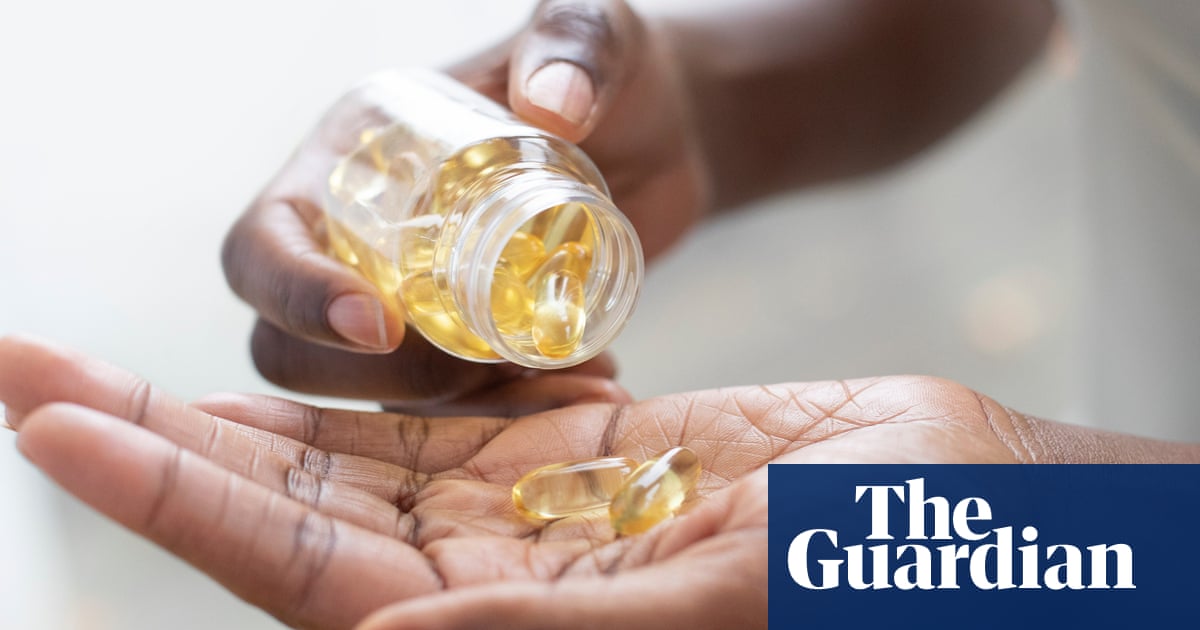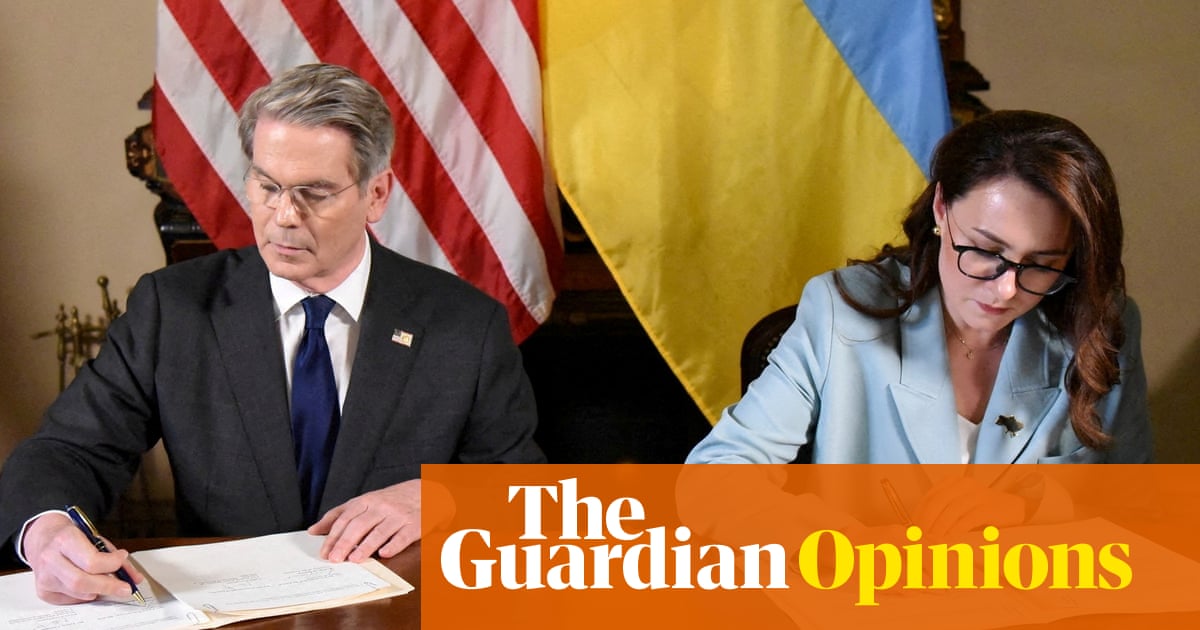There were two main tensions during Donald Trump’s meeting in the Oval Office with Canada’s new prime minister, Mark Carney, the first beneficiary of a growing electoral phenomenon: the anti-Trump bump. For the first time this term, Trump was meeting with a prime minister elected in opposition to him, and try as the two leaders might, the tensions simmered just beneath the surface.
Both sought to play it cool.
Trump congratulated Carney on his victory. “I have a lot of respect for this man … He ran a really great campaign,” Trump said, joking that he may have contributed to the historic 30% swing in the Canadian elections. Carney in turn sought not to provoke Trump and called him a “transformational” president. Flattery is appreciated in the Oval Office these days.
But the first hangup was, as they so often are, a partner’s bad habit. When a reporter brought up Trump’s remarks that Canada could become the 51st state, the US president said coyly: “I still believe that. But it takes two to tango, right?”
Carney replied as he only could: “It’s not for sale. It won’t be for sale. Ever.” To which, Trump responded: “I say: never say never.”
After the talks, Carney confirmed that was an irritant. “Have you asked the president to stop calling Canada the 51st state?” a reporter asked. “Yes. Today. Exactly what you just said,” he replied.
“I said it’s not useful to repeat this idea,” Carney said later in French. “But he is the president and he will say what he wants.”
The second difference may be irreconcilable. Asked whether he would lift new tariffs on Canada, Trump responded bluntly: “No. Because that’s the way it is.” Carney sought to recast the relationship between the two countries in business terms, calling Canada the United States’ “biggest client”. But Trump signaled he would take a hard line on trade deals with foreign countries. “They have to sign deals with us,” Trump said.
There was no quick fix. Carney gave the negotiations an interesting spin: the beginning of the end of “redefining the relationship” of the two country’s long-term partnership. It hardly looks like the “wonderful marriage” that Trump suggested an annexation of Canada could produce. The question is whether it is headed for a messy breakup instead.
World leaders are practiced at befriending, flattering and wooing Trump. He clearly likes Emmanuel Macron and Keir Starmer, despite their political differences – and he loves Giorgia Meloni despite their differences on Ukraine. He regularly calls Mexico’s Claudia Sheinbaum a “lovely woman” despite his migration policy. And – in public – he had a cordial meeting with Carney, despite openly pondering the annexation of his counterpart’s country.
But there is no escaping the potential effects of the trade war that Trump has unleashed around the world. Set among his court in the Oval Office, Howard Lutnick, the commerce secretary, confirmed that the US would also review the United States-Mexico-Canada (USMC) Agreement, the trade deal Trump himself negotiated during his first term. (“That was a transitional deal,” Trump said.)
after newsletter promotion
“We want to make our own cars,” Trump said. “We don’t really want cars from Canada, and we put tariffs on cars from Canada, and at a certain point it won’t make economic sense for Canada to build those cars. And we don’t want steel from Canada because we’re making our own steel.”
Carney during the campaign coined his strategy as “elbows up”, a hockey term for offering a stiff defense. And at moments today, he seemed to realize that he could not yield more ground to the US president. “Part of the way you conducted these tariffs has taken advantage of existing aspects of USMCA, so it’s going to have to change,” Carney retorted. Both sides predict tough negotiations to reach a revised trade deal.
There is an irony to Trump’s tariffs and bluster: the very policies meant to win him blue-collar and rightwing voters in the United States can repel those same constituents abroad. And in countries from Canada to Australia, voters are beginning to elect leaders who will be seen as standing up to an unpredictable, and sometimes insulting, US leader.
“There are some places that are never for sale,” Carney said during the meeting with Trump. “Having met with the owners of Canada over the course of the campaign, it’s not for sale. It won’t be for sale. Ever.”

.png) 8 hours ago
4
8 hours ago
4




